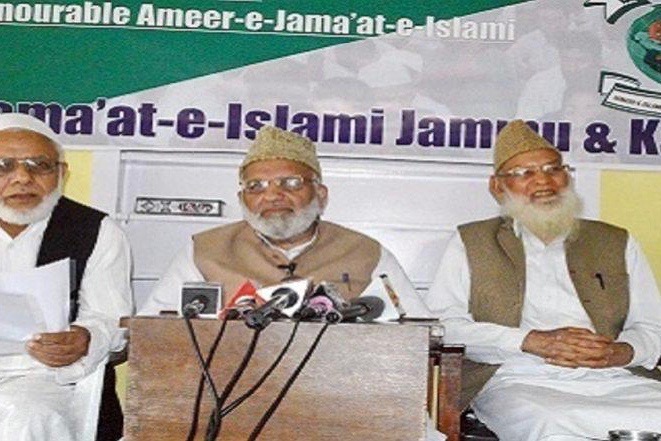Amidst the ongoing crackdown to detain the leaders and activists involved in radicalization in the Kashmir Valley, the Union Government banned the Jamaat-e-Islami (JeI) Jammu and Kashmir on Thursday. Citing the active involvement of JeI in “anti-national and subversive activities” as the reason, Ministry of Home Affairs (MHA) declared it as a felonious establishment and banned the organisation for five years under Section 3 of the Unlawful Activities (Prevention) Act (UAPA).
MASSIVE. Central Government hereby declares the Jamaat-e-Islami (JeI), Jammu and Kashmir as an “unlawful association”. Centre banning Jamaat e Islami states it is of opinion that JeI is in close touch with terror outfits and is supporting extremism and militancy in J&K. pic.twitter.com/MFLsEgD8Nn
— Aditya Raj Kaul (@AdityaRajKaul) February 28, 2019
Earlier, a high-level meeting on security was held to discuss the matter and was headed by Prime Minister Narendra Modi. Afterwards a notification was issued by MHA which stated that the JeI “has been indulging in activities which are prejudicial to internal security and public order, and have the potential of disrupting the unity and integrity of the country.”
It is a well-known secret that JeI is in close contact with militant outfits and is supporting extremism and militancy in J&K. Moreover, JeI has been an active part of separatist groups & terrorist organisation fighting for the claims for secession of Kashmir. The notification further pointed out the nefarious intent of the shady organisation and stated that JeI’s “activities and articulations intended to disrupt the territorial integrity of India”.
Further, explaining the consequences of the radicalization the report mentioned, “If unlawful activities of Jamaat-e-Islami are not curbed and controlled immediately, it is likely to escalate its subversive activities, including attempt to carve out an Islamic State out of the territory of Union of India by destabilizing the government established by law”.
If strict actions were not taken by the Union Government, Jamaat-e-Islami would have continued advocating secession of J&K from Union of India. Mentioning the fact, report stated, “JeI propagate anti-national and separatist sentiments prejudicial to integrity and security of the country, escalate secessionist movements, support militancy and incite violence”.
Jamaat-e-Islami, an orthodox organization, has a motive to establish an Islamic order in India. Officially, the organisation describes its objective as “Iqaamat-e-Deen” or “Establishment of (Islamic) way of life in all aspects of life” with “achievement of divine pleasure and success in the Hereafter” as the sole motive of the effort. Its core doctrine is “La Ilaha Illallahu Muhammadur Rasulullah”, i.e. “the Divine Being is solely Allah, there being no God except Him, and that Muhammad is Allah’s messenger”.
Under section 3 of Unlawful Activities (Prevention) Act, 1967, Central Government declares the Jamaat-e-Islami (JeI), Jammu and Kashmir as an "unlawful association". pic.twitter.com/74hNtFwZFP
— ANI (@ANI) February 28, 2019
In the wake of the Pulwama attack, a large number of Jamaat-e-Islami leader’s houses were raided. Although, the authorities are silent on the scale of detentions, police sources said about 250 leaders and activists have been detained. The detained leaders include Jamaat-e-Islami chief Dr Abdul Hameed Fayaz, former secretary general Dr Ghulam Qadir Lone, spokesperson Advocate Zahid Ali and most of the district presidents.
According to the India Today report, the Jamaat-e-Islami Hind is a part of the pan-Islamic movement and draws its inspiration from the Muslim Brotherhood of Egypt, the Fidayan-e-Islam of Iran and the Darul-Islam of Indonesia. In 1954, its many leaders were detained under the Preventive Detention Act. The organization was also banned during the emergency for their communal and inflammatory politics.
